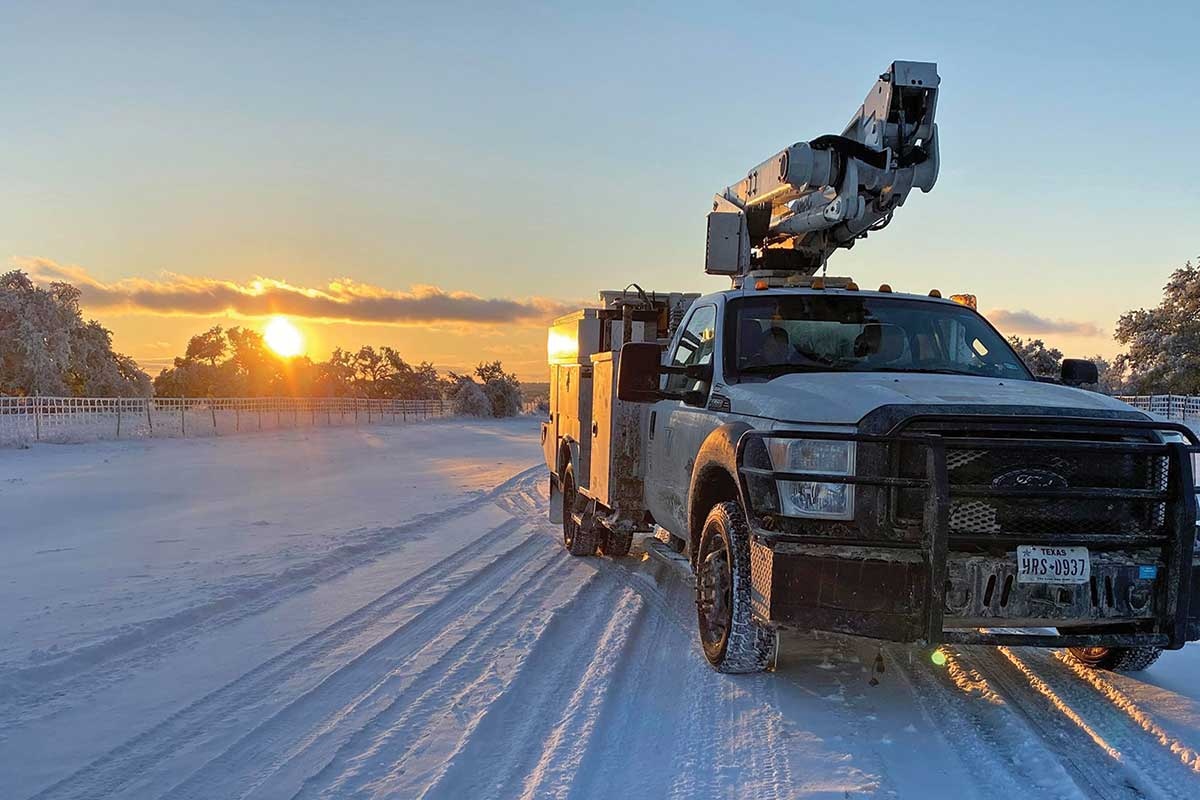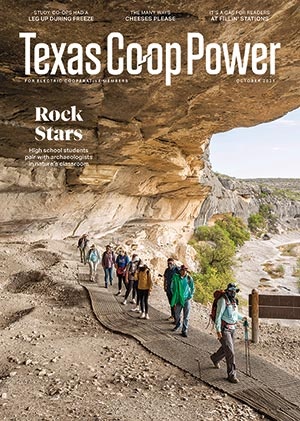We Texans can tell tales about weather extremes, usually a devastating tornado or a hurricane, a flash flood or a lingering drought. Occasionally we’ll recall a bone-chilling West Texas norther or a Panhandle blizzard, but we have less experience with the vicissitudes of winter cold.
Until February 13, 2021. That’s when a polar vortex smashed its way into the record books, disrupting lives and livelihoods and laying claim to being one of the worst natural disasters in Texas history. We’ll be telling stories about this winter for years to come.
More than 4.5 million homes and businesses lost power during the storm, which was likely the most expensive natural disaster in Texas history, causing more than $295 billion in damages. The official death toll stands at 210.
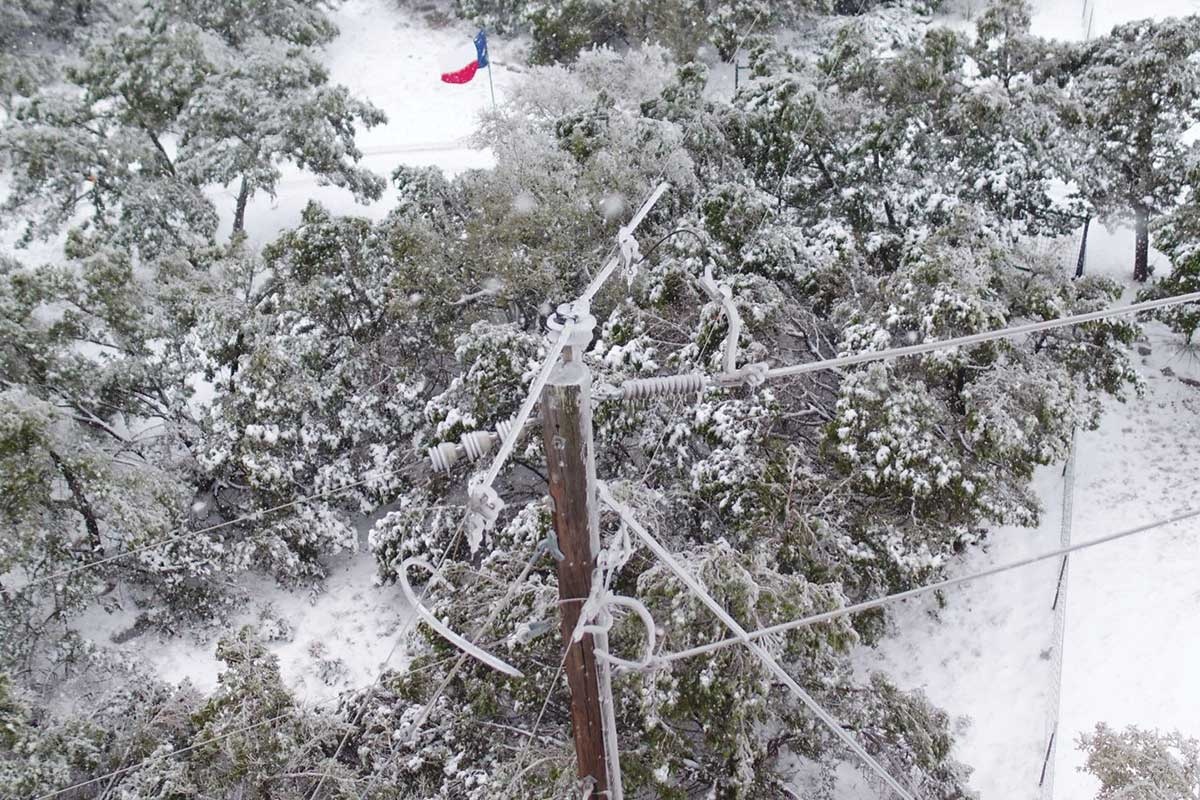
A drone’s view of Pedernales Electric Cooperative infrastructure.
Courtesy Pedernales Electric Cooperative
So how do Texans feel about their electricity providers’ response to the unprecedented crisis? That’s the question the Hobby School of Public Affairs at the University of Houston asked 1,500 Texans served by the electric grid managed by the Electrical Reliability Council of Texas.
The answer? Consumers rated their electric cooperative’s response better than did consumers of other power providers.
Survey results were clear. “Overall, electric cooperatives significantly outperformed their rivals in the eyes of their customers during the winter storm of 2021,” the Hobby School concluded.
Some 52% of co-op members who lost power agreed that the power cuts in their area were carried out in an equitable manner. That’s more than twice the positive response received by customers of investor-owned utilities operating in the state.
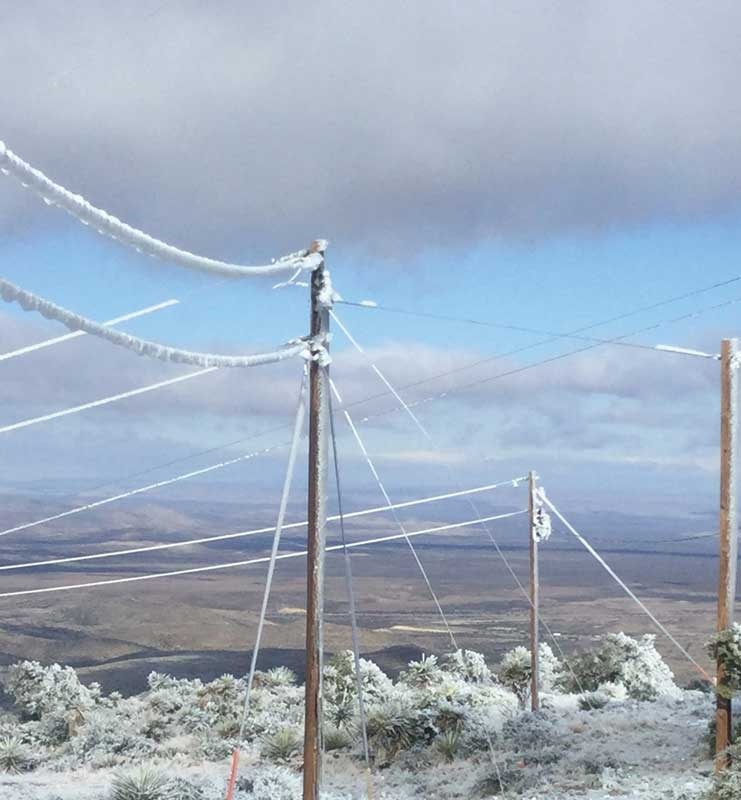
The iced lines of Rio Grande EC.
Courtesy Rio Grande Electric Cooperative
“Co-ops tend to be closer to their customers,” said Kirk Watson, dean of the Hobby School when the study took place and a former state senator. “Those relationships matter when it comes to trust and even just giving the benefit of the doubt when times get rough. Also, my experience tells me that co-ops tend to communicate more routinely with folks, and of course that makes a world of difference in a crisis.”
That valuable communication was noticed by co-op members.
“As a recent transplant to Fannin County, I just wanted to say how impressed I have been with your updates and communication this week,” Joyce Buchanan wrote on Facebook. She’s a Fannin County Electric Cooperative member who recently moved to McKinney from Ontario, Canada. “They have been timely, informative and so helpful in letting us know what to expect from day to day, sometimes hour to hour.”
The survey found that co-ops performed their core functions better than the commercial utilities and consumers believed that co-ops were better able to respond to crises like the February storm than were other electric utilities.
Kathi Calvert is pretty sure she knows why. Calvert, general manager of Crockett-based Houston County EC for the past eight years, points out that the co-op’s East Texas members were aware that co-op employees were right there with them, experiencing the same misery and hardships they were. They would not have known that about large, anonymous utilities headquartered who-knows-where.
They saw co-op employees leaving their own dark and powerless homes and making their way to work with several inches of snow and ice covering the ground, temperatures near zero. They saw bucket trucks in the community and linemen clambering up ice-encrusted poles.
She also made sure that when customers called in, they got their questions answered by a person—a member of their own community—even if the answer about such things as rotating outages may not have been what they wanted to hear. She had human resources and accounts payable employees—whoever was available—answering phones and keeping customers informed. She also made sure social media was providing the latest information.
“It was a team effort, a community-based effort,” Calvert said. “That’s why co-ops are trusted.”
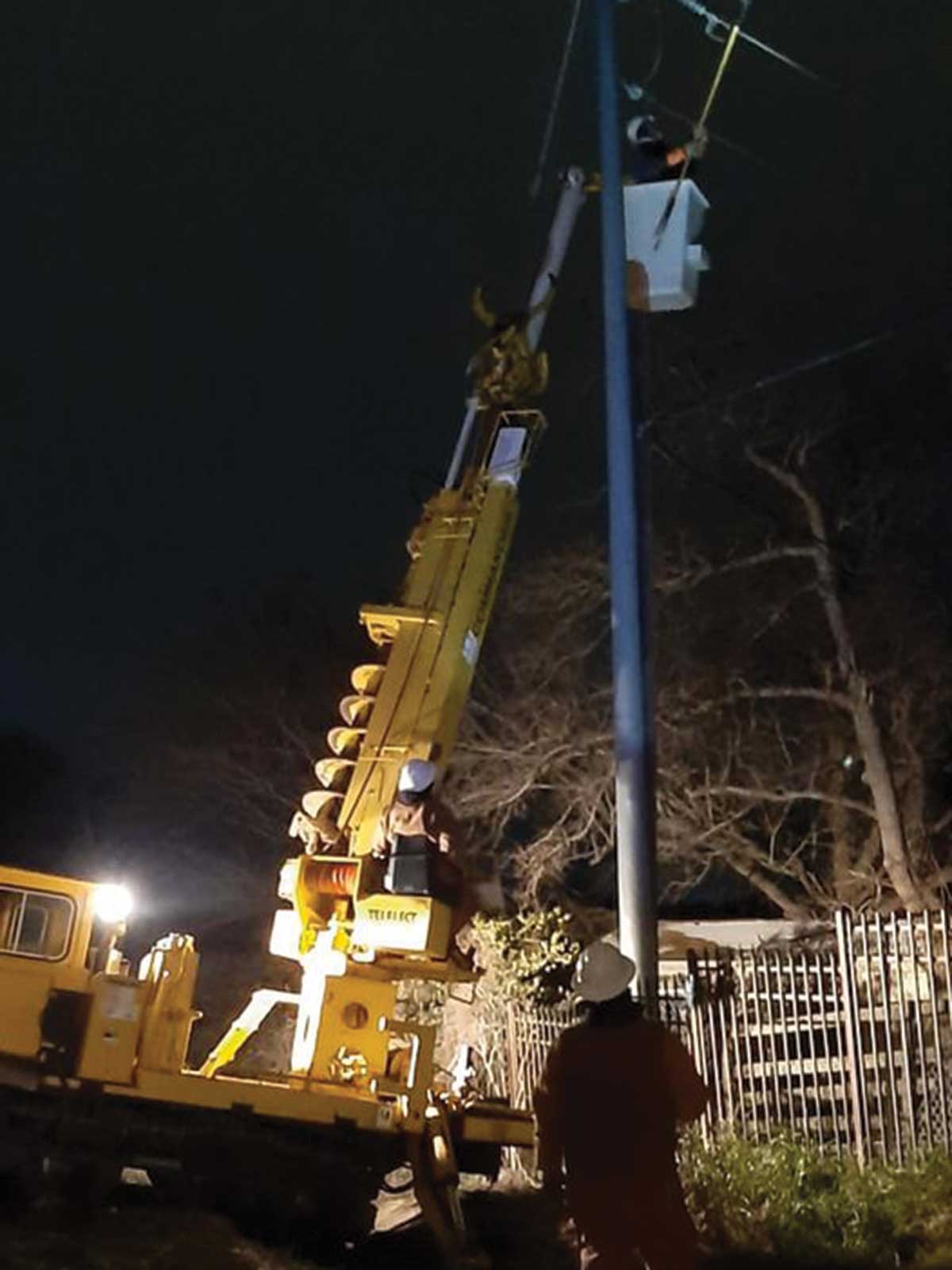
A San Bernard EC crew works to restore power.
Courtesy San Bernard Electric Cooperative
Even during the storm, co-op members expressed agreement with that sentiment. Brittany Brewer, a Fannin County EC member, posted this on the co-op’s Facebook page February 18: “We are lucky to have such a transparent power provider.”
Cameron Smallwood, CEO of United Cooperative Services, a Burleson-based co-op serving parts of North Texas, told Texas lawmakers a similar story during testimony before legislative committees in February. United not only prepared members in advance for the likelihood of debilitating winter weather, Smallwood explained, but the co-op used every means of communication available to keep its members informed.
Communications is “part of our DNA,” he said. “Our understanding is that customers from other utilities were watching our social media and information because they were lacking information [from their providers].”
State Rep. Shelby Slawson of Stephenville told Smallwood that she is a UCS member. “We’ve heard a lot about the importance of communication with the public. I want to openly commend you and United Co-op for the way you handled that,” she said.
Julie Parsley, CEO of Pedernales EC, reported to her board of directors a few weeks after life had pretty much returned to normal. She recalled that co-op linemen and other workers “were doing dangerous jobs in difficult conditions” during 165 consecutive hours of subfreezing temperatures. They were working 16-hour shifts in temperatures colder than Anchorage, Alaska. Information technology employees who had lost power at home worked out of their cars; member relations agents stayed in hotels close to PEC offices; and the co-op’s urgent team was on the job 24/7, dealing with snow, ice and mud even after the storm subsided.
Systems and equipment occasionally failed, “but the spirit and the resiliency of our employees surpassed that,” Parsley reported. “Our next step is to bring our systems up to the level of our employees, frankly.”
Less than one-fourth of co-op members rated poor or very poor how their co-op handled the rolling outages ERCOT required to reduce power demand. Well more than half of all other power providers’ customers rated their utility’s performance as poor or very poor.
So why did Texas’ 66 electric distribution cooperatives perform better than the municipal and investor-owned utilities? Those who conducted the survey—Watson, senior director and researcher Renée Cross, and Rice University political scientist Mark Jones—suggest that co-ops have built up a reservoir of trust among their members over decades of community-focused service.
“The customers of electric cooperatives are more likely to believe their electric utility has their best interests at heart than do the customers of commercial electric utilities,” the report said, “and therefore … are more likely to rate their electricity utility in a positive manner.”
